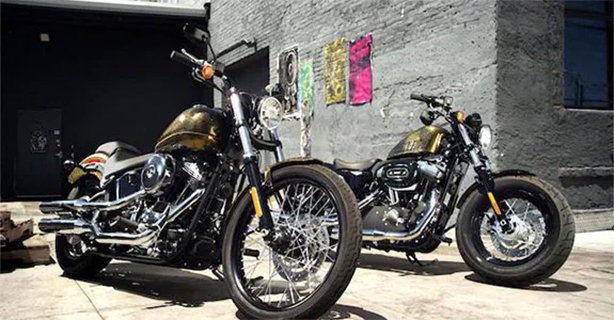THINGS TO DO FOLLOWING A MOTORCYCLE INCIDENT
It's an unfortunate fact of life that unforeseen incidents happen.
It could be that wet weather led to bad road conditions, or it could be that you just got too far into a turn and were unable to get out of it.
Whether it happens to you or you happen to be the first person on the scene, there are a few crucial steps to know in case of a motorcycle mishap.
WHAT TO DO AFTER A MOTORCYCLE INCIDENT?
1. Get Out Of Danger
While this may seem counterintuitive, getting yourself out of danger is triage 101. There could be a potential for a fluid spill or a steady traffic flow that you need to clear of before making any assessments.
If you can stand, don't try to move your motorcycle. Motorcycle damage should always come second to preventing bodily injury.
2. Keep Your Gear On
We recognize that after a mishap, the first thing you may want to do is remove your gear.
If you have a helmet on at the time of the incident, keep it on until emergency personnel arrives.
Other motorcycle gear may be supporting an injured area. As a result, it should only be removed in the presence of medical personnel.
3. Assess Yourself
Take a moment to breathe.
You may experience a rush of adrenaline immediately following the incident.
Once you are calm, look for visible injuries first.
4. Call For Help
If you need assistance, call 911, an ambulance, or the police.
After a motorcycle incident, you must report your incident to local law enforcement as soon as possible, depending on the amount of damage.
If you require medical attention, call 911 and wait for an ambulance to take you to the nearest hospital or care facility with appropriate equipment on hand for treatment.
5. Document The Scene
Was it just you involved, or were there other vehicles?
What were the factors that led to the incident?
Take pictures of the scene. If possible, take photos of yourself and any damage to your bike. If there's another driver involved, take photos of them and their vehicle—and in some cases, it can help to have a witness take photos.
Look for cameras to provide video evidence. If there are skid marks, document them.
Talk to witnesses; it's possible that they could provide crucial evidence, so don't forget to collect their contact details in case the local authorities need to speak with them.
6. Exchange Information With The Other Driver
Exchanging contact details with the other driver and any passengers is important.
This includes getting their name, address, and phone number; their license plate number; insurance information (including the insurance company's name, policy number, and agent's name); and driver's license number.
7. Speak With First Responders
By now, first responders should be arriving at the scene. This is typically EMTs, the police department, and occasionally the fire department. If you need medical attention, you will be directed to the EMTs on the scene or be taken to a hospital.
You will be asked to help with the police report. The police will want to know if there were injuries, who was involved, and what property damage was sustained.
Finally, confirm that all parties involved will sign off on police reports or other official paperwork before leaving the scene. This requirement may vary depending on where the incident took place. If one party doesn't agree with something written in the report or document , it may cause problems later down the road.
8. Speak With Your Motorcycle Insurance Company
Call your motorcycle insurance company as soon as possible. The best thing you can do is talk to a representative from your insurance company or agent as soon as possible.
Your details from steps 5, 6, and 7 (medical, contact details, and any additional evidence from the incident) will help your insurance company assess the situation.
Tell them what happened and get them to contact the other driver's insurance company and obtain a copy of the police report (if there was one).
BOTTOM LINE
We all hope that you never have to encounter an unplanned incident on your motorcycle. If you do, this guide will help you know what to do if the unthinkable happens.
Good luck, and be safe on the road!

